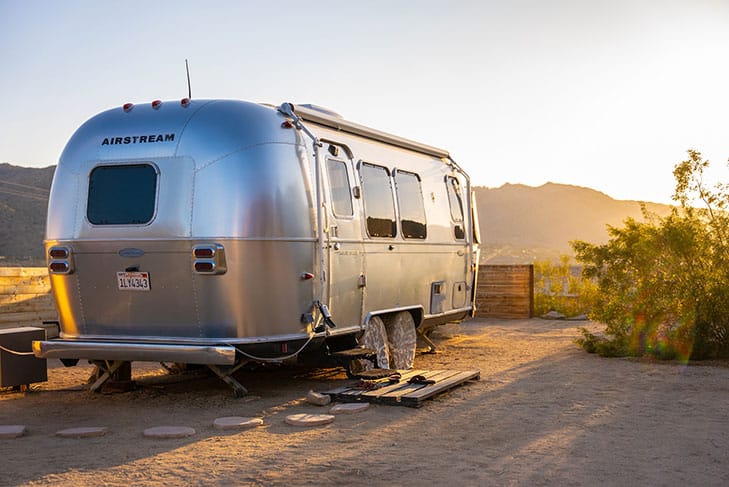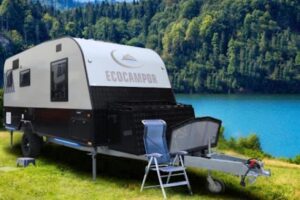The first and foremost of these aftermarket purchases you will have to make will be a portable generator to power your trailer. Ask virtually any full-time RVer and they will affirm that yes, you do want a generator for your RV.
For a number of reasons, ranging from comfort and usability to overall safety, it is a widely accepted best-practice to have a generator on hand during your RV adventures.
Do Trailers Come Stock With a Generator?
Typically, travel trailers are not sold off the lot with an RV generator. This is a decision made by most RV manufacturers in order to cut the overall weight of travel trailers down. RV generators are a heavy piece of equipment and contribute a lot of additional pounds to the gross weight of an RV.
For most folks looking to buy a trailer camper, there are two major limiting factors that will determine what type and size of trailer they can buy: budget and weight. To stay within budget, a majority of people end up buying a trailer that can be towed by a vehicle they already own. Thus, lightweight trailers have a more expansive pool of potential customers, as more people can transport them without upgrading to a more powerful tow vehicle.
Most medium to large sized motorhomes and some large fifth-wheel trailers are sold with built-in generators. If you want to avoid the hassle of purchasing and maintaining a portable RV generator, make sure the rig you buy has one built in.
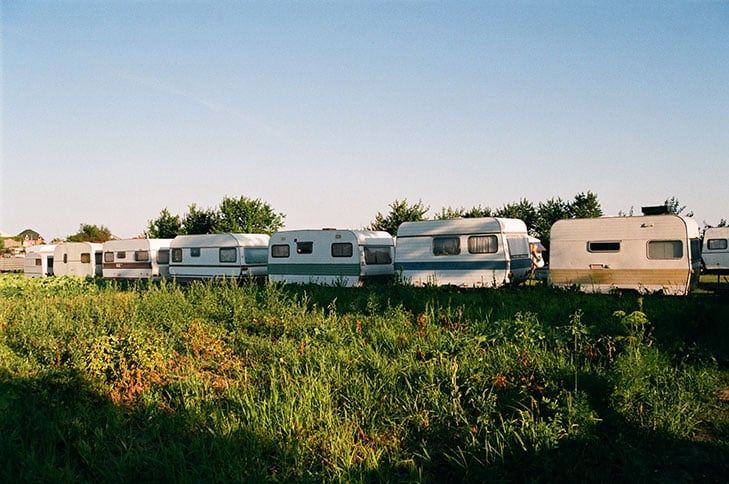
What Size Generator Do I Need For My RV?
Determining the size of generator necessary to power an RV really comes down to determining the overall power needs within the RV. If you rock a small trailer with sparse amenities, you’ll be able to get away with the smallest portable power generators on the market. This saves money on the initial investment and fuel costs.
Large travel trailers, on the other hand, require large generators. Trailers needing large generators are usually packed full of power-hungry appliances like air conditioners, microwaves, and water heaters.
Generators are sized using watts. A watt is a unit of measurement that indicates the rate at which energy flows. A larger generator produces electricity at a higher rate of flow than a smaller generator. Let’s say you are running a 2000 watt generator. At any given moment, this generator is producing 2000 watts of usable energy.
Most travel trailers will require a generator in the 3000W to 4000W range. This size is determined by looking at the various appliances in a trailer and how many watts of power each of those appliances needs to operate.
Determining Generator Size
Let’s run through a theoretical camping scenario and determine what size generator you would need to power your trailer in that scenario.
Imagine a typical evening camping in the desert in Utah. It’s a swelteringly hot day and you’ve just gotten back to the camper after a long hike. You’re hoping to cool down, relax, and cook some dinner.
The first thing you do is flick on the overhead lights and kick on the cooktop to start caramelizing some onions. The cooktop consumes 1,500 watts while in use, while the overhead lights need 50 watts. As you cook, your partner plugs in both your phones to charge, and turns the air conditioner on. The charging phones need 10 watts apiece and the air conditioner uses 700 watts while in use.
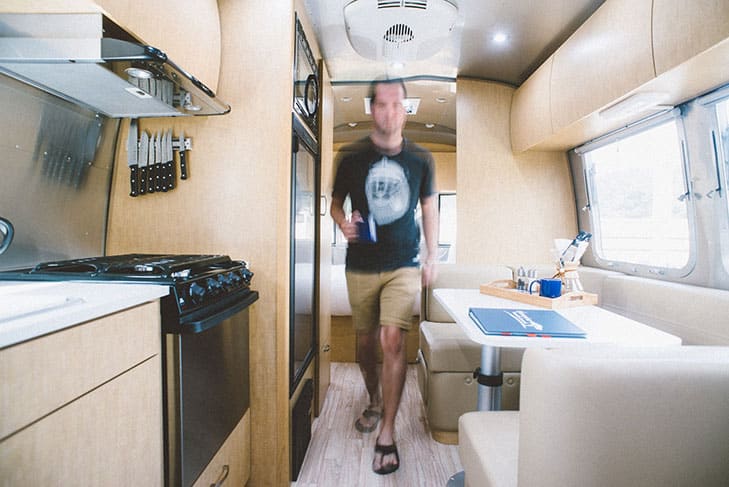
Add all those wattages together and you get 2,270 watts. So this is the number of watts you will need to get all of these processes going in the trailer, right? Wrong.
Air conditioners, and several other RV appliances, have a running wattage, and a starting wattage. The starting wattage refers to how many watts it takes to start the appliance. High-powered appliances often require a powerful surge of energy to kick on, so an air conditioner that operates at 700 watts may have a starting wattage of 2000 watts.
With this in mind, the wattage necessary to power the trailer in the above scenario rises to 3,570. When you consider that this trailer likely also has a small fridge in constant use, that wattage may rise as high as 3,800 or so. In this scenario, you will want a 4000W generator available to power the trailer.
Frequently Asked Questions
See what other RVers are asking.
Will a 3000W generator run an RV air conditioner?
A 3000W generator will be able to start and run most AC units. You may not be able to run many other appliances while starting the air conditioner, but after it has kicked on, there will be ample wattage for other appliances.
Are RV generators too heavy for travel trailers to transport?
Nope. A travel trailer is a plenty strong enough to transport a generator. Just ensure that you are loading the generator properly in order to prevent trailer-sway and that your tow vehicle is powerful enough to haul the additional weight.
Does my small trailer need a generator?
That’s completely up to you. If you will be bringing along many appliances, then you may need a generator to handle your power needs. With that said, most small trailers and campers like this lightweight slide-in truck camper, do not need generators. Small RVs can rely on solar arrays and battery banks for their power needs.
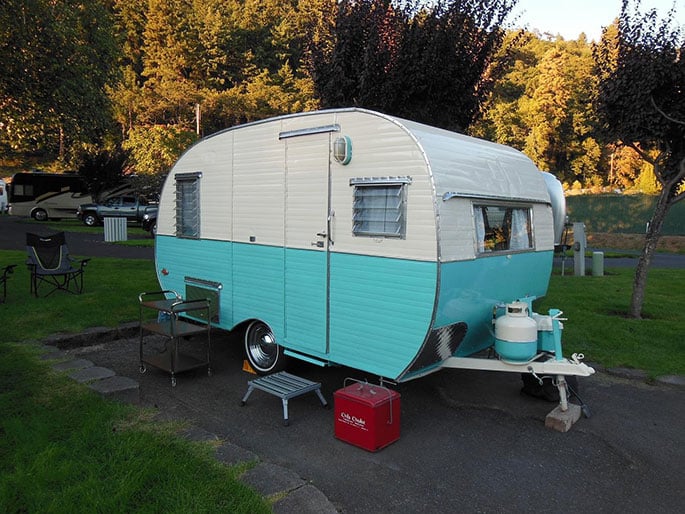
Determining the size of generator needed to power your travel trailer comes down to determining your daily power needs while camping. More appliances = bigger generator = more fuel. If you are a budget traveler, this will be important to keep in mind while purchasing a trailer or outfitting a custom-built trailer with appliances.
Many helpful guides and power usage calculators exist online if you need a hand calculating your RV power needs. Be thorough in this process to ensure the generator you invest in will meet your power needs.
Happy camping!

